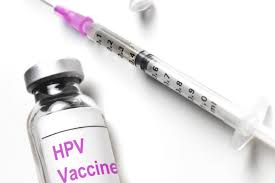According to him, HPV vaccine is key to preventing cervical cancer, noting that so far, 17 African countries have introduced HPV vaccination nationwide.
He said some countries were achieving high national HPV vaccine coverage with the commitment of their governments and partners.
He noted that WHO had been recommending comprehensive approach to cancer control in its support on prevention and management of cancer in Nigeria.
He added that “WHO recommends comprehensive approach to cancer control, which spans prevention, early detection, diagnosis, treatment and palliative care.
“Prevention is undertaken through cancer behavioural causes: tobacco, overweight, physical activity, and harmful use of alcohol.
“These risk factors are on the rise in Africa and WHO supports member states to develop and implement Non-Communicable Diseases (NCDs) Global Action plan.
“With WHO’s support, Nigeria developed its 2019-2025 NCDs Multisectoral Action Plan which highlights various interventions to reduce the burden of NCDs in the country.
“WHO also supported government of Nigeria to develop the National Cancer Plan which highlights various interventions to reduce the burden of cancer in the country.’’
In addition, the country representative said, WHO had been supporting the development of National Strategic Plan on prevention and control of cervical cancer (2017 – 2021).
“It has also supported the development of an annual implementation plan (2020-2021) and Monitoring and Evaluation framework for cervical cancer control and prevention.’’
Mulombo, however, appreciated the efforts that Government (at national and state levels) and partners who were implementing interventions to prevent and control cancer and its risk factors in Nigeria.
He said WHO was committed to supporting Federal Government in the fight against non-communicable diseases, cancer in particular.
“I would like to urge partners and government to sustain the efforts and commit more resources to accelerate actions to prevent and reduce cancer in Nigeria,’’ the official said.
According to him, WHO joins the international community in commemorating the 2021 World Cancer Day under the theme “I am and I will” to mark the end of the three-year campaign.
He explained that the campaign tagged “I am and I will” sought to reduce fear, increase understanding and change behaviours and attitude around cancer.
He added that “over the past 20 years, new cancer cases have more than doubled in the African Region from 338,000 cases reported in 2002 to almost 846,000 cases in 2020.
“The most common forms are cancers of the breast, cervix, prostate, bowel, colon, rectum and liver.’’
source: Pharmatimes

 World Health Organisation Country Representative to Nigeria, Walter Mulombo, says the organisation is working with National Primary Health Care Development Agency to introduce Human papillomavirus vaccine into Expanded Programme on Immunisation schedule.
World Health Organisation Country Representative to Nigeria, Walter Mulombo, says the organisation is working with National Primary Health Care Development Agency to introduce Human papillomavirus vaccine into Expanded Programme on Immunisation schedule.




